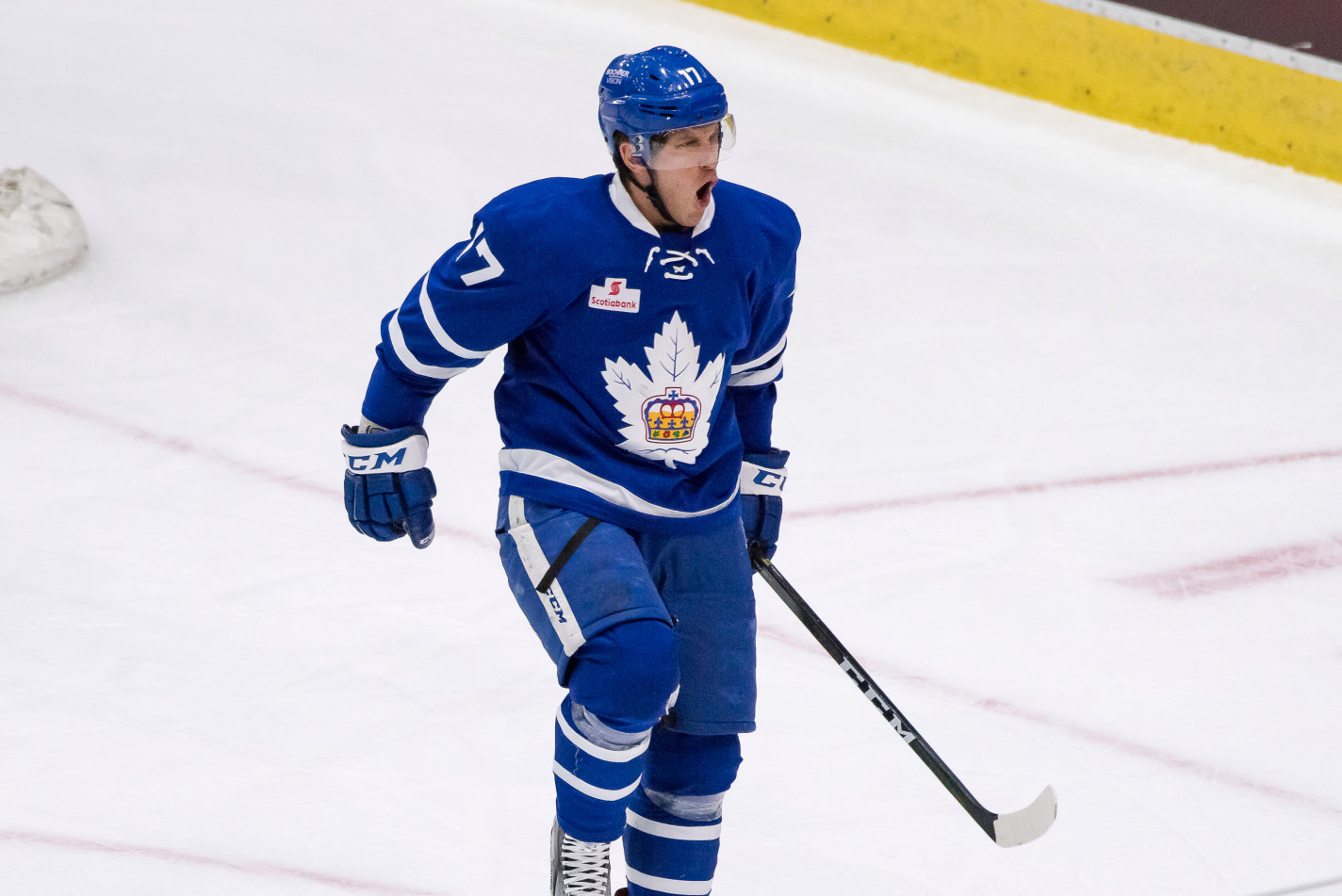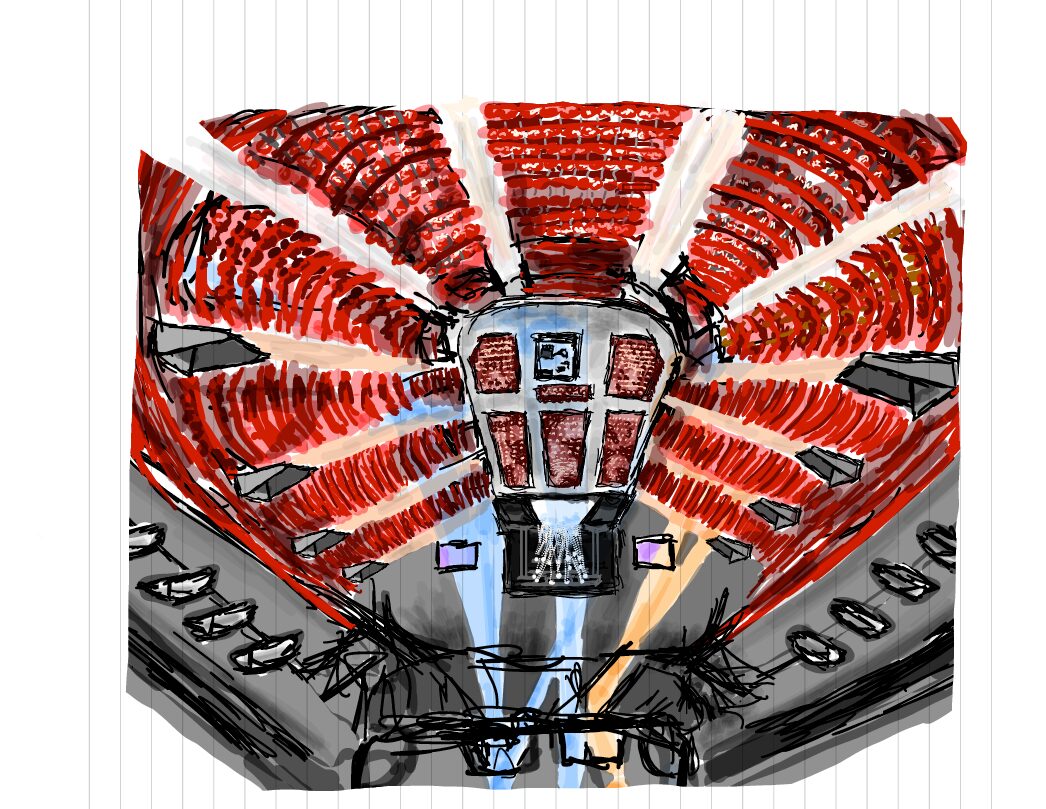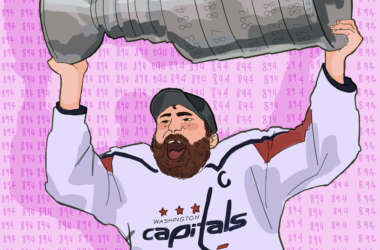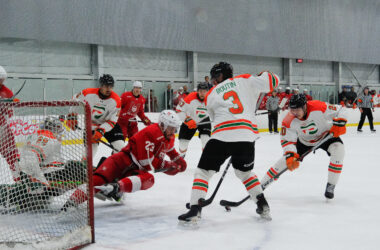Hockey players are, in a word, tough; they’re willing to risk their bodies and overcome injuries in the name of the sport. As a result, the general public rarely associates mental health struggles with hockey players, nor athletes in general. Rich Clune, who grew up playing hockey in the era of the ‘suck it up’ philosophy, is a professional hockey player from Toronto who has spent the last decade between the National Hockey League (NHL) and the American Hockey League (AHL), playing for teams such as the Los Angeles Kings, the Nashville Predators, and the Toronto Maple Leafs. He has openly discussed his struggles with drug and alcohol addiction and mental health since he became sober in May 2010. He sat down with The McGill Tribune to discuss the changing culture around mental health in hockey and in university, and what can be done to further support people struggling with these issues.
“I think there [has] always been a misconception about what’s talked [about] in the dressing room,” Clune said. “[But] it’s improving. Hockey players care about each other.”
Nearly five years ago, the NHL launched a program called “Hockey Talks,” which has created many new avenues for the open discussion of mental health. The program started in 2013 after the tragic passing of hockey player Rick Rypien, a fan favourite in Vancouver who took his life after suffering from clinical depression. It started the conversation about mental health issues in hockey.
“[Rypien’s tragic passing] was eye-opening, […] essentially an alpha male, suffering from these mental health issues,” Clune said. “[The] perception of tough guys and fighters was so much different and it surprised many [that] these guys can have these problems.”
To help athletes struggling with mental health issues, and to reduce the likelihood that others develop them in the future, steps must be taken to educate people on mental health—especially for the sake of younger athletes who may feel that they they can’t discuss their problems. If they are struggling, players shouldn’t be compelled to hide it.
“Kids will see it’s okay to talk about the issues,” Clune said. “The more they can get coaches and parents to talk about these issues, the better it will be at the minor level.”
To combat mental illness, it’s vital that informative resources are available. They help give people the confidence they need to feel comfortable discussing their mental health and the skills needed to protect their loved ones.
“We have to educate people on what is going on,” Clune said. “If you can look at the symptoms and recognize them, we can be proactive about the issues and be well-equipped to try and handle the situation.”
Of course, mental health doesn’t just affect hockey players. Clune also addressed the importance of education and how mental health issues can affect students, and provided guidance for afflicted students.
“Education is a big part of the family,” Clune said. “I know students have a lot riding on school, whether it be parents [paying] tuition or [if] you have a scholarship. [Students] have to be world beaters. It’s okay to ask for help. There is a lot of strength in that. Take advantage of counsellors. Take a break if need be. If you look someone in the eye and tell them you have a problem, you would be hard-pressed to find someone who would look down on you.”
University is a difficult balancing act, and many students find themselves overwhelmed, struggling with the apparent either-or choice between extracurricular activities and academic pursuits. Still, Clune believes that students should make these difficult decisions with serious consideration of their own health.
“I know how hard it is to balance school, social life, and going out,” Clune said. “Your mental health should be [a] priority and if you have to cut back on something, it’s okay.”
Clune has become an inspiration for the hockey community and remains extremely involved in several capacities, all while playing in the AHL: In his spare time, he works with organizations such as the Canadian Mental Health Association and SickNotWeak, while also volunteering as a counsellor for recovering addicts at the Renascent Treatment Centre.
He left the conversation with one lasting mantra—for athletes and students alike—to follow and apply themselves in tough situations.
“I’m not responsible for my disease,” Clune said. “[I’m] responsible for my actions and how they can improve it. I am always willing to put in the work, […] especially if it improves me as a person.”









